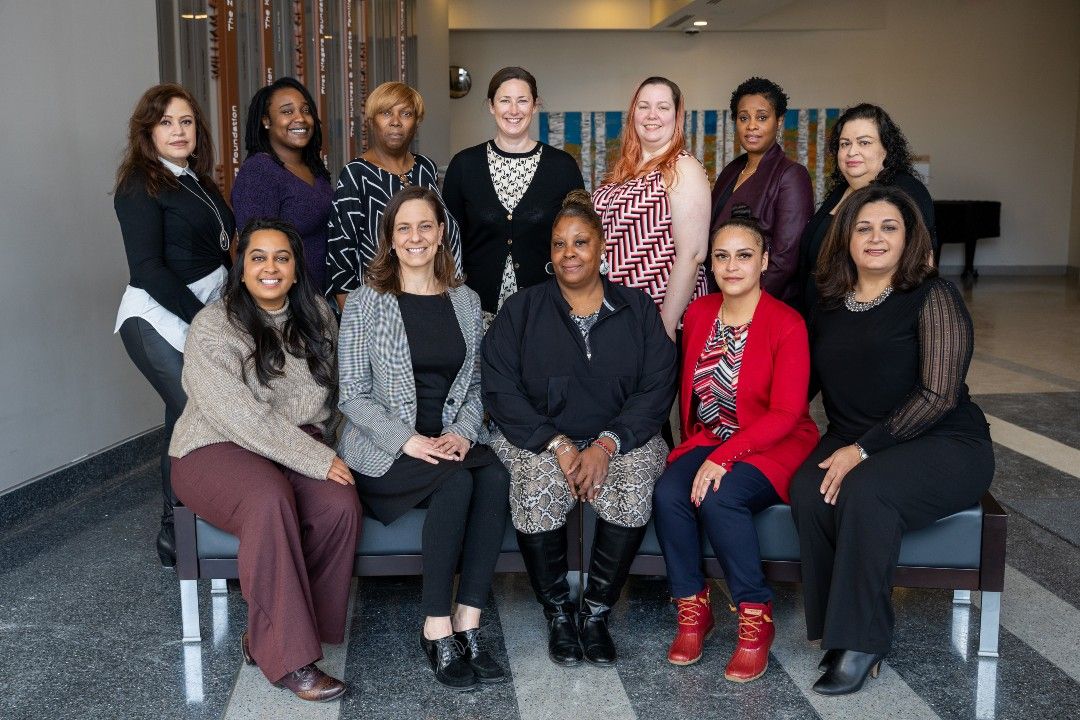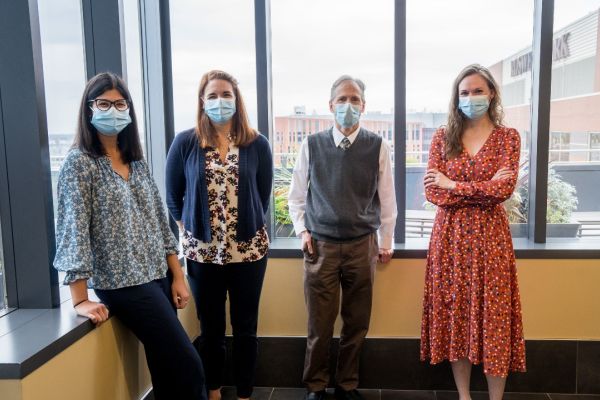The world of cancer care and prevention goes well beyond the walls of Roswell Park Comprehensive Cancer Center. The Office of Community Outreach and Engagement (COE), a team within the Cancer Prevention and Control Department, works to help provide information and access to cancer screenings in the hopes of reducing the cancer rate across the region.
“Our office works toward understanding cancer health disparities and developing and offering integrated community-based services and educational programs tailored to meet the needs of these populations, including many communities of color and those that have been historically underserved," says Nikia Clark, a Community Relations Coordinator and Program Coordinator on the COE team. “We are here to serve. The mission of the COE is to assure that all cancer patients and communities in Western New York can benefit from, and have access to, all the clinical and scientific advances accomplished at Roswell Park.”
Why this is important
“Cancer rates and trends can vary from place to place,” explains Clark. “Here in Western New York, we have higher rates of breast and lung cancer than other parts of the state or country. In addition, specific groups of us — African Americans, Native Americans, Hispanics, refugees and others — face an increased risk for developing cancer and a greater burden from the disease, such as poorer survival rates,” she says. For example, African Americans are more likely to die from cancer after being diagnosed that any other racial or ethnic group in the country, while Native Americans have a greater risk for developing and dying from kidney cancer and Hispanic/Latinx people are more likely to die from cancer of the stomach, liver, gallbladder and cervix, some of which is related to infections they develop.
Our mission in action
The COE team is tasked with increasing awareness and providing educational programs about cancers, such as breast, prostate, colorectal, lung and cervical cancers, that pose a higher risk to minority, medically underserved and low socioeconomic groups. “We have resources to offer programs on any cancer-related topic of interest. Informing people about the importance of screening and early detection is another major focus of our programs. At our events, we sign people up for cancer screenings if needed and also help arrange transportation and navigation services if needed as well,” Clark says.
Cancer screening and prevention
It matters who conducts your tests and interprets your results. At Roswell Park, our detection experts focus exclusively on cancer every day.
Learn MoreWhile the COVID-19 pandemic has restricted the in-person activities and outreach opportunities the COE team has been able to host in the past two years, the team has found new ways to be flexible in carrying out its mission. “We work evening hours and weekends. Much of the outreach activities are in community centers, social service organizations, faith-based organizations, community health clinics, schools, colleges, residential housing including single family homes, senior living establishments and properties managed by the Buffalo Municipal Housing Authority,” she says. “We conduct outreach at health fairs, community events, neighborhood block clubs, cultural events, church services and anywhere and everywhere we are invited. Our team covers the eight-county catchment area of Western New York, so our outreach efforts expand beyond the city of Buffalo and go into rural counties and smaller cities and towns across WNY.”
While some people might have higher risks of developing certain types of cancers based on their family history, the risks can be mitigated by adopting healthier practices, including eating healthfully, getting exercise and, most importantly, making sure to get all age-appropriate cancer screenings. That includes annual mammograms for women starting at age 40 and prostate cancer exams for men starting at age 50 for men who are at average risk or age 45 for African American men.
“It is important to know that there are ways to prevent and reduce your cancer risk,” Clark says. “By knowing your medical family history, the importance of a balanced, nutritious diet, the benefit of exercise, staying current with all doctors’ appointments and cancer screening guidelines, quitting smoking and limiting alcohol consumption, in addition to lowering stress levels and increasing mental health well-being, you can improve your cancer outcomes.”
Any group interested in scheduling a program with the Community and Education Outreach can do so by contacting Nikia Clark at Nikia.Clark@RoswellPark.org or calling 716-845-4888.

